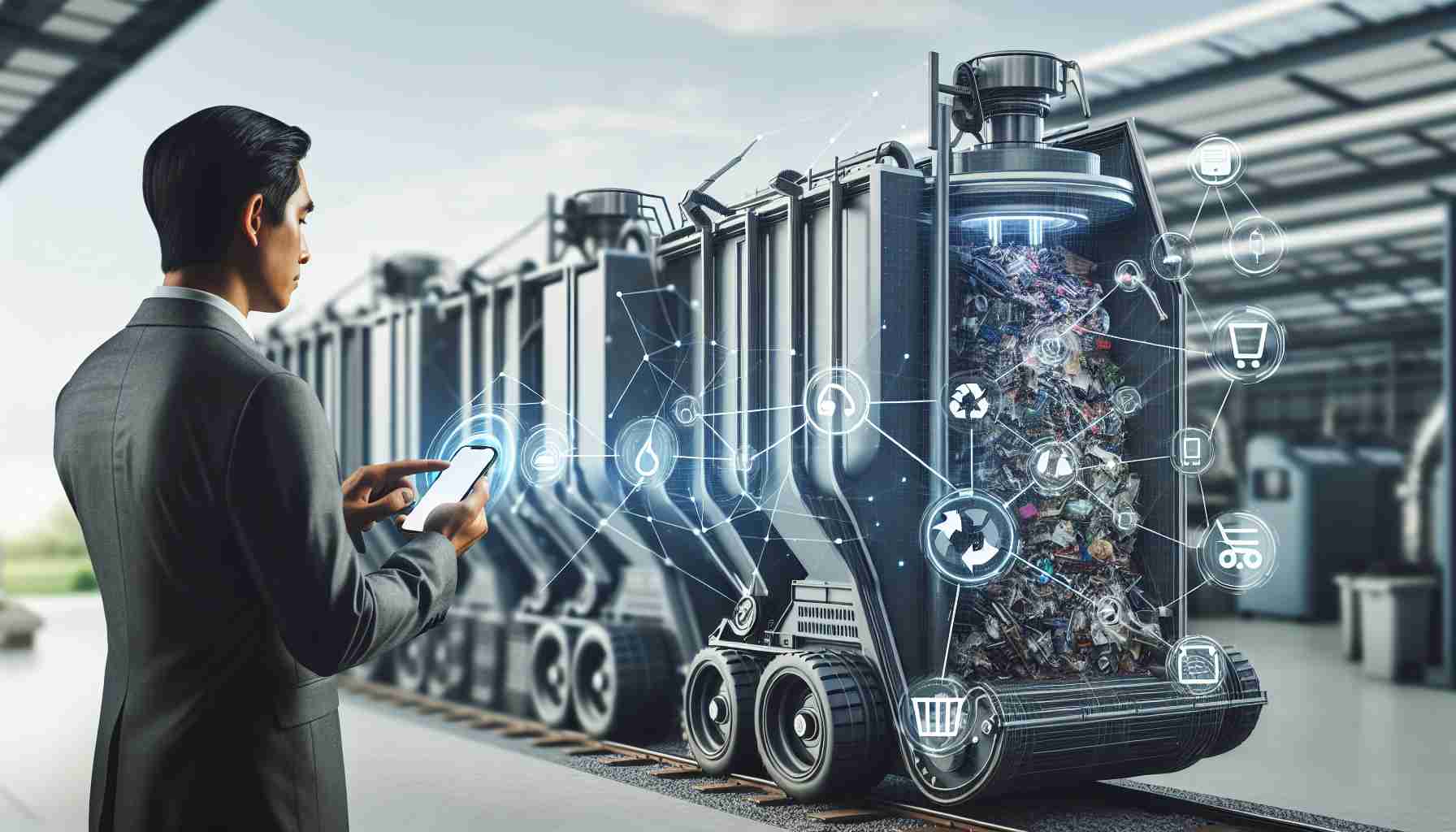
In an effort to streamline waste management and promote resource recycling, the city of Gunsan has launched a series of innovative initiatives. Aiming to enhance convenience for residents, these programs enable easy disposal of large waste items through an efficient smartphone application.
The newly introduced service revolutionizes the traditional process of discarding bulky waste. Previously, residents had to purchase stickers, a process which is now simplified. By simply taking a photo of the item and submitting it through the app, users can initiate the waste disposal request. This digital application ensures that the details are instantly transmitted to both municipally-operated and partnered waste management companies for prompt action.
Additionally, to assist those with transportation challenges, the program offers a “Drop-Off” service where large items are efficiently moved from designated locations. Gunsan is also championing sustainability with its “Pre-Owned Purchase” service. This initiative not only facilitates the recycling of large items but also converts them into goods that can be resold, further encouraging resource circulation.
The city’s forward-thinking approach is expected to significantly bolster waste reduction efforts and enhance the efficient reuse of resources. By adopting these services, Gunsan is paving the way for a more sustainable future and exemplifying how digital technology can play an integral role in improving urban waste management systems. Residents can now look forward to a cleaner city with a streamlined waste disposal process at their fingertips.
The Silent Impact of Digital Waste Management: How Gunsan’s Model is Transforming Communities
Recent advancements in digital technology have paved the way for unprecedented changes in urban waste management, with the city of Gunsan leading a pioneering initiative that is turning heads globally. While Gunsan’s approach of using a smartphone app for waste disposal has been publicized, there are intriguing facets of this initiative that deserve closer attention. Understanding its broader implications can reveal how it potentially transforms lifestyles and decisions across diverse communities and countries.
Innovative Technology and Its Community Impact
Gunsan’s digital waste management system is not just a localized phenomenon. It represents a blueprint for cities worldwide grappling with waste management challenges. This innovation has the potential to ripple across global communities, fostering neighborhood cleanliness, reducing illegal dumping, and enhancing the quality of urban living.
Benefits and Accessibility Concerns
One notable advantage of this digital system is the reduction in bureaucratic red tape, leading to faster response times for waste collection, ultimately reducing unsightly trash piles. Moreover, this can enhance property values and community aesthetics, contributing to the overall well-being of the population.
However, this raises critical questions about accessibility. What about those residents who are not technologically savvy or lack smartphone access? This digital divide might exclude vulnerable groups, raising ethical concerns about equitable access.
Sustainability and Economic Opportunities
Gunsan’s focus on sustainability, such as the “Pre-Owned Purchase” service, catalyzes economic opportunities by creating a circular economy. The redistribution and resale of pre-owned goods can stimulate local markets, create jobs, and reduce environmental footprints.
Challenges arise in ensuring the quality and safety of resold items, necessitating regulatory oversight to protect consumers. Additionally, the success of such a program depends on cultural acceptance and the willingness of the public to engage in secondhand markets.
Environmental Impact: A Double-Edged Sword?
While facilitating resource recycling is Gunsan’s triumph, there is a potential downside. Increased reliance on digital systems can lead to e-waste problems if devices and infrastructure are not sustainably managed. What strategies can municipalities adopt to curb this potential issue?
Global Implications and Questions
Could this model be adopted by other cities around the world? What customization would be necessary for diverse urban settings? Transitioning to a digital waste management system appears promising, yet requires careful consideration of socio-cultural dynamics and infrastructural readiness.
For more insights on community sustainability and technology integration in urban planning, explore these resources: United Nations Sustainable Development, World Economic Forum.
In conclusion, Gunsan’s digital waste management initiatives reflect a forward-thinking approach that holds promise far beyond its borders. As cities strive for sustainability, the balance between technological advancement and human-centered design will be crucial in shaping livable, inclusive communities.
